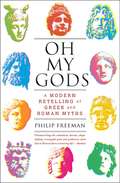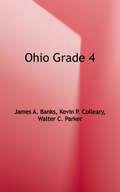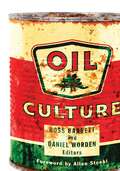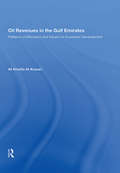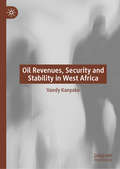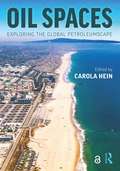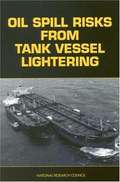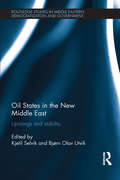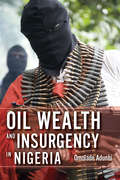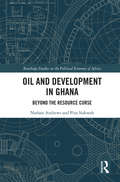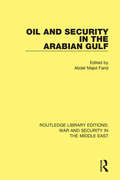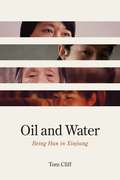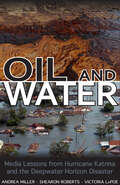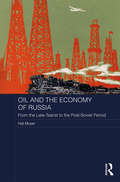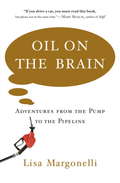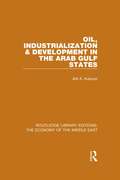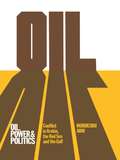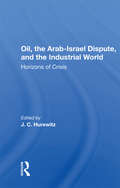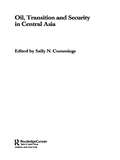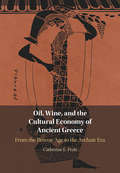- Table View
- List View
Oh My Gods
by Philip FreemanThe Greek and Roman myths have never died out; in fact they are as relevant today as ever. For thousands of years these myths have inspired plays, operas, paintings, movies, and television programs. They are fascinating tales that tell us about ourselves--about our hopes, fears, and desires, which are as ancient as mankind. Many of these myths are deeply disturbing; others are sublimely beautiful. All of them move us still, as they did the Greeks and Romans hundreds of generations ago. Oh My Gods is a retelling of some of the most popular myths by a gifted scholar and writer. These tales of errant gods, fantastic creatures, and human heroes are brought to life in fresh and contemporary versions. Have there ever been stories to rival the myths about the creation of the universe and the wars among the earliest gods? Or about the Olympian gods themselves: powerful Zeus, king of the gods, possessed of a wandering eye; his wife, Hera, queen of marriage and childbirth, perpetually outraged by her husband's many affairs; Poseidon, god of the sea, brother of Zeus; their other brother, Hades, god of the underworld; and all the other gods and goddesses--talented Apollo, beautiful Aphrodite, fierce Athena, swift Hermes, and many more. And the dauntless heroes Theseus and Hercules, the doomed lovers Hero and Leander or Orpheus and Eurydice, whose stories can still break our hearts. From the astonishing tales of the Argonauts to the immortal narrative of the Battle of Troy, these ancient myths have inspired writers from Shakespeare to J. K. Rowling. Philip Freeman's vibrant, contemporary retelling makes us appreciate again why these wonderful tales have lasted thousands of years and charmed young and old readers alike.
Oh My Gods: A Modern Retelling of Greek and Roman Myths
by Philip FreemanFrom acclaimed writer and scholar Philip Freeman, a contemporary retelling of classic Greek and Roman mythology.The Greek and Roman myths have never died out; in fact they are as relevant today as ever in their sharp observations about human nature. For thousands of years they have inspired plays, operas, and paintings; today they live on in movies and video games. Oh My Gods is a contemporary retelling of some of the most popular myths by Philip Freeman, a noted classicist. These tales of errant gods, fantastic creatures, and human heroes are brought to life in fresh and modern versions. Powerful Zeus; his perpetually aggrieved wife, Hera; talented Apollo; beautiful Aphrodite; fierce Athena; the dauntless heroes Theseus and Hercules; and the doomed lovers Orpheus and Eurydice still inspire awe, give us courage, and break our hearts. From the astonishing tales of the Argonauts to the immortal narrative of the Battle of Troy, these ancient tales have inspired writers from Shakespeare to J. K. Rowling. In Philip Freeman's vibrant retelling they will doubtless inspire a new generation of readers.
Oh, to Be Fifty Again: On Being Too Old For a Mid-life Crisis
by Eda J. LeShanWhen Eda LeShan realized she would soon be joining the ranks of the 28.5 million senior citizens in this country, she started doing some research. She talked to scores of men and women, compared notes, asked about their deepest fears, their greatest joys. The result is Oh, To Be 50 Again!—a truthful examination of what it means to grow older today. As a family counselor writing about psychological crises, Eda LeShan has always been outspoken, compassionate, and honest. Four generations of fans have sought guidance, practical solutions, and emotional comfort from her. Now, in a logical sequel to her book The Wonderful Crisis of Middle Age, she turns her attention to the often bothersome, sometimes humorous, inevitable business of growing older. Here is Eda LeShan’s personal philosophy as well as the thoughts and feelings of the people she’s interviewed. Mrs. LeShan addresses the most significant concerns of post-middle-age Americans. She reflects on dealing with a world that’s nothing like the one you grew up in, on having the right attitude when your knees buckle and your belt doesn’t, on learning to take the bad with the good, on having a need more than ever for a purpose. Mrs. LeShan doesn’t pretend to have easy answers, but like a wise friend, she shares her fears and offers insights. on accepting physical limitations to enjoying grandchildren without any of the responsibilities, from understanding changing sexual needs to continuing the search for identity, from preparing for death to earning the right to our eccentricities—her advice is sound, and it’s all given with the warmth and candor that her audience has come to expect. Eda LeShan is a noted educator, family counselor, and author of over twenty books, including When Your Child Drives You Crazy, The Wonderful Crisis of Middle Age, and In Search of Myself and Other Children. She is a contributing editor to Woman’s Day, for which she writes a monthly column, “Talking It Over.” For three years, Mrs. LeShan was moderator of the Emmy- nominated public television series “How Do Your Children Grow?”
Ohio Achievement Assessment Coach: Grade 5 Social Studies
by Triumph Learning LlcA handbook, the perfect coach book for all the fifth graders as they aim to improve their social studies skills as it starts with a pretest to determine ones strengths and weakness to point out the areas you need to work on.
Ohio Grade 4
by James A. Banks Kevin P. Colleary Walter C. ParkerThis book is organized to help you understand and apply social studies content and skills as you read. -Unit Opener and People Who Made a Difference pages introduce you to the people and places in the unit. - Chapter Opener pages introduce you to the time and place of events you will read about. - Lesson Opener pages prepare you before you read. - Lesson Review pages test your understanding of the lesson. -Reading Skills pages help you understand social studies content. - Biographies and Primary Sources bring the past alive. - Citizenship pages show real-life participation in democracy. -Readers' Theater and Literature bring Ohio history alive.
Ohio Holt Social Studies: United States History Beginnings to 1877
by William Deverell Deborah Gray WhiteNIMAC-sourced textbook
Ohio in the United States
by Zimmer Jarrett KilloranOhio in the United States will help you master Ohio's Fourth Grade Learning Standards in social studies. In the activities in this book, you will learn about the geography of Ohio, the main events that led to the settling of Ohio, and some of the challenges the people of Ohio have faced since achieving statehood. You will also learn about Ohio's diverse ethnic heritage and the importance of respecting the traditions and achievements of others. You are about to set off on an exciting journey in which you will travel through 28 activities. Each activity has been designed to provide you with an opportunity to cooperate, discuss, brainstorm, debate, research, and learn what you need for passing the Fourth Grade Ohio Achievement Test in Social Studies.
Oil Culture
by Daniel Worden Ross BarrettIn the 150 years since the birth of the petroleum industry oil has saturated our culture, fueling our cars and wars, our economy and policies. But just as thoroughly, culture saturates oil. So what exactly is &“oil culture&”? This book pursues an answer through petrocapitalism&’s history in literature, film, fine art, wartime propaganda, and museum displays. Investigating cultural discourses that have taken shape around oil, these essays compose the first sustained attempt to understand how petroleum has suffused the Western imagination.The contributors to this volume examine the oil culture nexus, beginning with the whale oil culture it replaced and analyzing literature and films such as Giant, Sundown, Bernardo Bertolucci&’s La Via del Petrolio, and Ben Okri&’s &“What the Tapster Saw&”; corporate art, museum installations, and contemporary photography; and in apocalyptic visions of environmental disaster and science fiction. By considering oil as both a natural resource and a trope, the authors show how oil&’s dominance is part of culture rather than an economic or physical necessity. Oil Culture sees beyond oil capitalism to alternative modes of energy production and consumption.Contributors: Georgiana Banita, U of Bamberg; Frederick Buell, Queens College; Gerry Canavan, Marquette U; Melanie Doherty, Wesleyan College; Sarah Frohardt-Lane, Ripon College, Matthew T. Huber, Syracuse U; Dolly Jørgensen, Umeå U; Stephanie LeMenager, U of Oregon; Hanna Musiol, Northeastern U; Chad H. Parker, U of Louisiana at Lafayette; Ruth Salvaggio, U of North Carolina, Chapel Hill; Heidi Scott, Florida International U; Imre Szeman, U of Alberta; Michael Watts, U of California, Berkeley; Jennifer Wenzel, Columbia University; Sheena Wilson, U of Alberta; Rochelle Raineri Zuck, U of Minnesota Duluth; Catherine Zuromskis, U of New Mexico.
Oil Revenues In The Gulf/h
by Ali Khalifa Al-KuwariThis book is a major contribution to our understanding of the Gulf Emirates, illuminating many aspects of the socio-economic forces and processes operating on and in the region. It assesses actual oil revenues received and shows the impact oil revenues have had on economic development.
Oil Revenues, Security and Stability in West Africa
by Vandy KanyakoThis book offers a new look at the oil industry in West Africa, proposing to examine the entire region that has been viewed through the lens of Nigeria, Ghana and Gabon. The author argues that, in order to address peace and stability in the region, it is important to understand the transformative powers of petroleum revenue. The project also includes the author’s analysis of the problem on multiple levels: international oil companies, states, and local communities. Also, it takes a deeper look at the effects and importance of local communities in the above countries and discusses adequately the strategic challenges that petro-capitalism poses for West Africa’s regional stability and human security.
Oil Spaces: Exploring the Global Petroleumscape
by Carola HeinOil Spaces traces petroleum’s impact through a range of territories from across the world, showing how industrially drilled petroleum and its refined products have played a major role in transforming the built environment in ways that are often not visible or recognized. Over the past century and a half, industrially drilled petroleum has powered factories, built cities, and sustained nation-states. It has fueled ways of life and visions of progress, modernity, and disaster. In detailed international case studies, the contributors consider petroleum’s role in the built environment and the imagination. They study how petroleum and its infrastructure have served as a source of military conflict and political and economic power, inspiring efforts to create territories and reshape geographies and national boundaries. The authors trace ruptures and continuities between colonial and postcolonial frameworks, in locations as diverse as Sumatra, northeast China, Brazil, Nigeria, Tanzania, and Kuwait as well as heritage sites including former power stations in Italy and the port of Dunkirk, once a prime gateway through which petroleum entered Europe. By revealing petroleum’s role in organizing and imagining space globally, this book takes up a key task in imagining the possibilities of a post-oil future. It will be invaluable reading to scholars and students of architectural and urban history, planning, and geography of sustainable urban environments.
Oil Spill Risks from Tank Vessel Lightering
by Committee on Oil Spill Risks from Tank Vessel LighteringStudy focuses narrowly on the risks of oil spills from lightering, which was defined as the transfer at sea of crude oil or petroleum products from one vessel to another. Paper.
Oil States in the New Middle East: Uprisings and stability (Routledge Studies in Middle Eastern Democratization and Government)
by Kjetil Selvik Bjørn Olav UtvikOil has been central to regime survival for oil states across the Arabian Peninsula and has been at the heart of their attempts to defuse the wave of Arab revolutions. However, in 2011 revolution hit Libya, the most oil dependent regime in the Middle East. The political storm winds that have swept this region have thrown into doubt the resilience of Arab rentier states, and highlight how the political effects of oil vary across the oil producing countries. Oil States in the New Middle East brings together leading experts to critically assess the centrality of oil and the relevance of Rentier State Theory in light of the post-2011 upheaval across the Middle East and North Africa. It combines overall reflections on the political dynamics in oil states with focused case investigations of individual countries. Taking as its starting point the centrality of oil in explanations of regime survival, the book analyses how the oil states have responded to and fared throughout the Arab popular upheavals, resulting in a critical assessment of the continued relevance of Rentier State Theory. While observers have asked how the uprisings varied between oil and non-oil states, this book turns the comparative focus inward, arguing for a more fine-grained understanding of the political effects of oil in different oil producing countries. This book would be of interest to students and scholars of Middle East, North Africa and Gulf Studies, Oil and Politics, as well as Comparative Politics and International Political Economy.
Oil Wealth and Insurgency in Nigeria
by Omolade AdunbiOmolade Adunbi investigates the myths behind competing claims to oil wealth in Nigeria's Niger Delta. Looking at ownership of natural resources, oil extraction practices, government control over oil resources, and discourse about oil, Adunbi shows how symbolic claims have created an "oil citizenship." He explores the ways NGOs, militant groups, and community organizers invoke an ancestral promise to defend land disputes, justify disruptive actions, or organize against oil corporations. Policies to control the abundant resources have increased contestations over wealth, transformed the relationship of people to their environment, and produced unique forms of power, governance, and belonging.
Oil and Development in Ghana: Beyond the Resource Curse (Routledge Studies on the Political Economy of Africa)
by Nathan Andrews Pius SiakwahThis book gives a comprehensive overview of Ghana’s hydrocarbon economy using actor network and assemblage theories to contest the methodological nationalism of mainstream accounts of the resource curse in resource-rich countries. Drawing upon recent field research focused on Ghana’s oil and gas sector and utilizing the theoretical framework of actor network theory, the authors contend that there is an assemblage of political, economic, social and environmental networks, processes, actions, actors, and structures of power that coalesce to determine the extent to which the country’s hydrocarbon resources could be regarded as a "curse" or "blessing." This framing facilitates a better understanding of the variety (and duality) of local and global forces and power structures at play in Ghana’s growing hydrocarbon industry. Giving a nuanced and multi-perspectival analysis of the factors that underlie oil-engendered development in Ghana, this book will be of interest to students and scholars of African political economy, development and the politics of resource extraction.
Oil and Security in the Arabian Gulf
by Daniel Bertaux & Paul ThompsonThe issue of security in the Gulf has an importance which goes far beyond the regional location of the area. It is enough to note that instability in the area may result in the interruption of oil supplies to the rest of the world. This book, first published in 1981, considers some of the challenges facing the region following recent developments such as the fall of the Shah and the proclamation of the Islamic Republic in Iran, the Soviet presence in Afghanistan, the formation of an American task force to intervene in the area, the failure of the Camp David agreement and the Iran-Iraq war.
Oil and Water: Being Han in Xinjiang
by Tom CliffFor decades, China's Xinjiang region has been the site of clashes between long-residing Uyghur and Han settlers. Up until now, much scholarly attention has been paid to state actions and the Uyghur's efforts to resist cultural and economic repression. This has left the other half of the puzzle--the motivations and ambitions of Han settlers themselves--sorely understudied. With Oil and Water, anthropologist Tom Cliff offers the first ethnographic study of Han in Xinjiang, using in-depth vignettes, oral histories, and more than fifty original photographs to explore how and why they became the people they are now. By shifting focus to the lived experience of ordinary Han settlers, Oil and Water provides an entirely new perspective on Chinese nation building in the twenty-first century and demonstrates the vital role that Xinjiang Han play in national politics--not simply as Beijing's pawns, but as individuals pursuing their own survival and dreams on the frontier.
Oil and Water: Media Lessons from Hurricane Katrina and the Deepwater Horizon Disaster
by Andrea Miller Shearon Roberts Victoria LapoeAlong the Gulf Coast, history is often referenced as pre-Katrina or post-Katrina. However, the natural disaster that appalled the world in 2005 has been joined by another catastrophe, this one man-made—the greatest environmental and maritime accident of all time, the Deepwater Horizon Oil Spill. In less than five years, the Gulf Coast has experienced two colossal disasters, very different, yet very similar. And these two equally complex crises have resulted in a steep learning curve for all, but especially the journalists covering these enduring stories. In Oil and Water, the authors explore the media-fed experiences, the visuals and narratives associated with both disasters. Katrina journalists have reluctantly had to transform into oil spill journalists. The authors look at this process of growth from the viewpoints not only of the journalists, but also of the public and of the scientific community. Through a detailed analysis of the journalists' content, the authors tackle significant questions. This book assesses the quality of journalism and the effects that quality may have on the public. The authors argue that regardless of the type of journalism involved or the immensity of the events covered, successful reportage still depends on the fundamentals of journalism and the importance of following these tenets consistently in a crisis atmosphere, especially when confronted with enduring crises that are just years apart.
Oil and the Economy of Russia: From the Late-Tsarist to the Post-Soviet Period (BASEES/Routledge Series on Russian and East European Studies)
by Nat MoserThis book examines the development of the Russian economy from tsarist times to the present through the lens of the oil industry. It considers the role of the state, business-state relations, foreign participation, enterprise performance and technology. Besides providing much rich detail on the changing nature of the oil industry, the book also puts forward important conclusions, including the fact that in the late nineteenth century private enterprise rather than the state was the principal driver of economic development, and that after the collapse of the Soviet Union incumbent managers were more effective in running their companies than financier entrants, whose main concern was short-term gain.
Oil on the Brain
by Lisa MargonelliThis is a paperbound edition of a 2007 book. Journalist Margonelli unpacks the global political economy of petroleum by interviewing a diverse range of people around the world involved in and impacted by oil, including gas station owners, commodity traders, managers of the US Strategic Petroleum Reserve, and refinery and drilling rig workers. In addition to describing the path of gasoline from under the ground to the tank of an automobile, she offers chapters that explore the oil politics of Venezuela, Chad, Iran, Nigeria, and China. Annotation ©2008 Book News, Inc. , Portland, OR (booknews. com)
Oil, Industrialization & Development in the Arab Gulf States (Routledge Library Editions: The Economy of the Middle East)
by Atif KubursiWere oil supplies everlasting and the demand for oil strong and continuous, economic diversification in the Gulf would be pointless. However oil reserves are finite and non-renewable and the world demand for oil from the Gulf region is simply not stable. Collectively the countries of the Gulf face the striking prospect that unless priorities and plans are set with care the gestation period of their economic development may be longer than the expected life of their hydrocarbon resources. This book examines just that threat. It considers the opportunities available to the Gulf states for accumulating sufficient productive capital in the non-oil sectors of their economy to offset the drawing down of oil reserves. The book pays particular attention to the possibilities of development through cooperation not only within the Gulf Cooperation Council but also within the larger Arab region and the Third World as a whole. It concludes with a critical review of the main challenges that these economies are facing and are likely to face in the near future with special emphasis on their major problems and failures. First published in 1984.
Oil, Power and Politics: Conflict of Asian and African Studies, Hebrew University of Jerusalem
by Mordechai AbirThis study of political relations in the Middle East analyzes the reasons behind the instability of the region.
Oil, The Arab-israel Dispute, And The Industrial World: Horizons Of Crisis
by J. C. HurewitzThis book is the product of a multinational project, sponsored by the Middle East Institute of Columbia University in cooperation with the World Peace Foundation (Boston), the Atlantic Institute for International Affairs (Paris), and the Asia-Pacific Association of Japan (Tokyo). It focuses on the principal unresolved issues of the energy crisis, t
Oil, Transition and Security in Central Asia
by Sally CummingsApproaching Central Asia from the perspective of geopolitics, transition, oil and stability, the authors provide a very broad and diverse analysis of the region, examining domestic and international developments since 1991. The book both provides an introduction to the region and presents advanced research on international pipeline projects, political risk and developments after September 11th. The authors draw on a variety of disciplines, including economics, politics, international relations, law and sociology.
Oil, Wine, and the Cultural Economy of Ancient Greece: From the Bronze Age to the Archaic Era
by Catherine E. PrattIn this book, Catherine E. Pratt explores how oil and wine became increasingly entangled in Greek culture, from the Late Bronze Age to the Archaic period. Using ceramic, architectural, and archaeobotanical data, she argues that Bronze Age exchange practices initiated a strong network of dependency between oil and wine production, and the people who produced, exchanged, and used them. After the palatial collapse, these prehistoric connections intensified during the Iron Age and evolved into the large-scale industries of the Classical period. Pratt argues that oil and wine in pre-Classical Greece should be considered 'cultural commodities', products that become indispensable for proper social and economic exchanges well beyond economic advantage. Offering a detailed diachronic account of the changing roles of surplus oil and wine in the economies of pre-classical Greek societies, her book contributes to a broader understanding of the complex interconnections between agriculture, commerce, and culture in the ancient Mediterranean.
